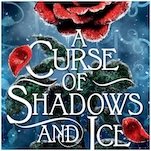Woody Allen Does Not Get a Pass
How to redefine the comedic cinema landscape and get away with being garbage
Photo Courtesy Kevin Winter/Getty Images
As more and more survivors of assault and coercion step forward to attack the culture that silences women, it becomes clear we’re going to need to think about how we remember some foundational works of film and the men who made them. This article is the second in a series where we examine the cultural impact of entertainment industry titans and then grapple with the allegations that have had them expelled from public life.
Woody Allen is still here, quoth some retrospective article once a year, every year, since about 1990 or so. And he is. This year he released Wonder Wheel, largely to critical indifference or disdain. It’s a movie set in 1950s Coney Island, and focuses in part on an older woman (Kate Winslet, who I guess passes for a fading beauty?!) growing hysterical over the attention a curvier, younger woman is getting from the men in her life.
Allen is something of a curiosity to a cinephile of my age—those of us who grew up just as the Boomers were making their shift toward becoming majority Reagan Republicans and all their outsider post-war art lost its edgy sheen and started to look like a desperate attempt not to grow up, ever. There’s something perfunctory about Allen’s work, something that feels dashed off, like whatever he says or does can’t possibly not be good enough to exhaustively chronicle. Like the Updike omnibus my father handed me, Allen’s work is a hole whose depth I readily acknowledge while also professing no desire to plumb. We are not going to discuss any of that here, beyond acknowledging that scholars of cinema will pick over his body of work long after we’re all dead.
-

-

-

-

-

-

-

-

-

-

-

-

-

-

-

-

-

-

-

-

-

-

-

-

-

-

-

-

-

-

-

-

-

-

-

-

-

-

-

-








































